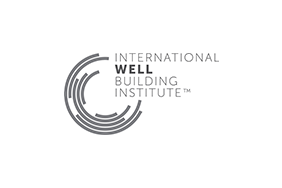The Global Rise of Healthy Building Policy
Published 08-25-23
Submitted by International WELL Building Institute

The past few years in the United States have seen remarkable progress in the adoption and implementation of healthy building policies. The U.S. Conference of Mayors (USCM) has issued two unanimous policy resolutions, one in 2020 and another in 2022, endorsing healthy buildings as a powerful tool to advance public health and an essential defense against future health threats. Heeding the call, cities like Miami, Jersey City and Oklahoma City are now leading by example, scaling the WELL Health-Safety Rating across a portfolio of municipal buildings. The Biden Administration too has shined a bright light on healthy buildings with the first ever White House Summit on Indoor Air Quality and the launch of the Clean Air in Buildings Challenge, not to mention CDC’s recent guidance on ventilation and GSA’s efforts to drive healthy building research and promote the Health in Buildings roundtable.
It’s clear that, increasingly, governments at all levels are stepping up to help create spaces that support health and well-being. And just as the momentum continues to build in the U.S., a similar trend is unfolding in other parts of the world, reflecting a universal demand for healthier spaces.
- In the United Kingdom, the Department for Work and Pensions (DWP) and Department of Health and Social Care (DHSC) in July announced efforts to increase uptake of occupational health services in the workplace. The policy effort encourages employers to ramp up these services to help employees access vital mental and physical health support at work, particularly for those working in small and medium-sized enterprises.
- In the United Arab Emirates, The Dubai Land Department (DLD)’s Real Estate Regulatory Agency (RERA) has officially adopted the WELL Health-Safety Rating and is encouraging organizations to align with the program in jointly owned properties (JOPs) and enhance investor confidence.
- In the European Union this past spring, the EU Parliament passed its Energy Performance of Buildings Directive (EPBD), a key legislative tool to set and implement building decarbonization goals. The approved EPBD included an important healthy building provision, Article 11a, titled, “Indoor Environmental Quality,” which says, “Member States shall set requirements for the implementation of adequate indoor environmental quality standards in buildings in order to maintain a healthy indoor climate.”
- In Australia, the Australian Health Protection Principal Committee, the national government’s top health protection committee, announced that it was making indoor air quality a national priority. “Today is about putting this on the agenda, on the map,” said Member of Parliament Dr. Michelle Ananda-Rajah, a longtime advocate of prioritizing IAQ and who, earlier this year, also hosted a Clean Air Forum earlier this year.
- In Singapore, the National Environmental Agency recently issued updated guidance on improving ventilation and indoor air quality in buildings to better support an healthy indoor environment.
Globally, healthy building policies are shaping more than just urban landscapes, they’re transforming how our indoor spaces protect and enhance our health. As the global understanding deepens about the pivotal role healthy buildings can play in improving public health, there’s a mounting urgency to utilize policy to accelerate spaces that advance human health and well-being. Together, these global policy efforts will help accelerate the healthy buildings movement, enabling their benefits to reach more and more people around the world.

International WELL Building Institute
International WELL Building Institute
The International WELL Building Institute (IWBI) is a public benefit corporation and the world’s leading organization focused on deploying people-first places to advance a global culture of health. IWBI mobilizes its community through the administration of the WELL Building Standard (WELL Standard) and WELL ratings and certifications, management of the WELL AP credential, the pursuit of applicable research, the development of educational resources and advocacy for policies that promote health and well-being everywhere. More information on WELL can be found here.
IWBI is a participant of the United Nations Global Compact, the world’s largest corporate citizenship initiative, and helps companies advance the UN Sustainable Development Goals (SDGs) through the use of WELL.
More from International WELL Building Institute

